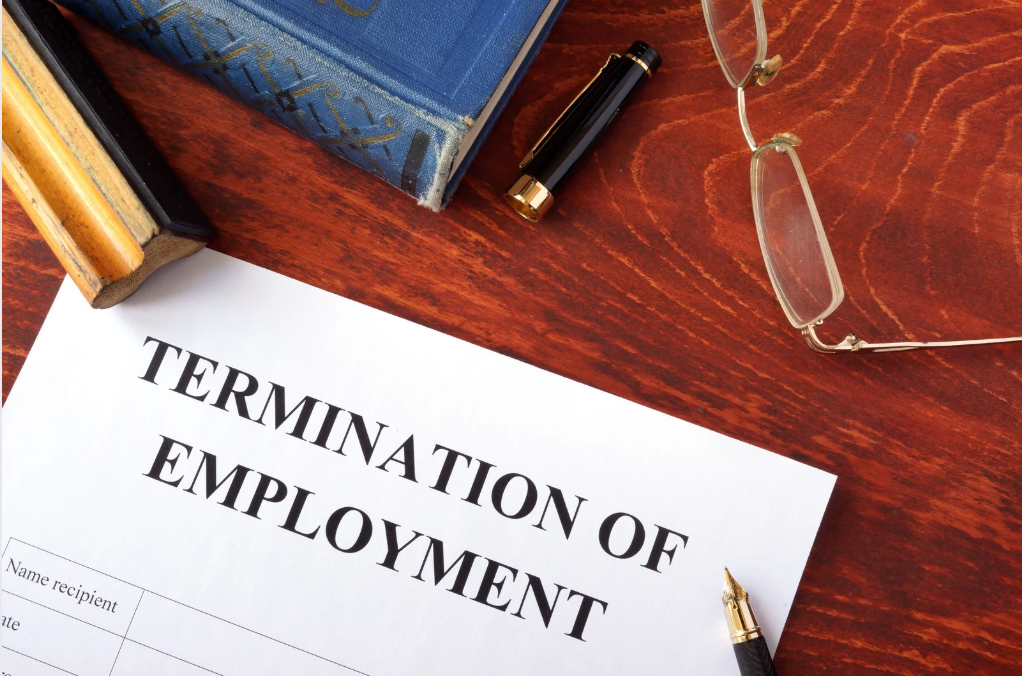Blog

Experiencing a personal injury such as a car accident, slip and fall, or even medical malpractice can turn your world upside down. Medical bills are mounting, work is impossible, and stress is causing emotional challenges whenever you think about what happened. If you reside in California, a personal injury settlement can alleviate some of the financial hardship associated with your recovery; however, many insurance companies are challenging to deal with and will do everything they can to minimize your payout. At The Gould Firm in San Diego, we have seen it all and will help you obtain the money you deserve. Attorney Evan A. Gould’s decades of experience, including his time defending insurance companies, give him a unique edge in countering their tactics. Here’s your guide to maximizing your personal injury settlement in California, with tips on evidence collection, dealing with insurers, and avoiding common pitfalls. Factors That Influence Your Personal Injury Settlement Many key factors form the basis of your settlement in California. Knowing these factors can help you create a better case: Severity of Injuries: More serious injuries, like broken bones, traumatic brain injuries, or spinal damage, typically lead to higher settlements due to increased medical costs and long-term impacts. Medical Expenses: Documented costs for hospital stays, surgeries, rehab, and future care are a major component of your claim. Lost Wages and Earning Capacity: If your injury keeps you from working or reduces your future earning potential, you can claim these losses. Pain and Suffering: California allows compensation for physical pain, emotional distress, and reduced quality of life, though these are harder to quantify. Liability: Clear evidence that the other party was at fault strengthens your case. California’s pure comparative negligence rule means you can recover damages even if you’re partially at fault, but your percentage of blame reduces your payout. Insurance Policy Limits: If your settlement does not exceed the amount received from the at-fault party's insurance coverage, you only have the chance to pursue an agreeable defendant who has personal assets. By focusing on these factors, you can push for a settlement that fully reflects your losses. Step 1: Collect Strong Evidence The backbone of any personal injury claim is solid evidence. Without it, insurance companies will lowball you or deny your claim outright. Here’s how to gather what you need: Seek Medical Attention Immediately: Visit a doctor or ER right away, even if injuries seem minor. Medical records link your injuries to the accident and document your treatment costs. Follow your doctor’s plan to avoid claims that you didn’t take your recovery seriously. Document the Scene: Take pictures or videos of the accident scene, your injuries, and any property damage (for example, a totaled car or broken bike). Write down anything obvious about road conditions, weather, or traffic signals. Get Witness Statements: Collect names and contact info from anyone who saw the accident. Their testimony can back up your version of events. Obtain Official Reports: For car accidents or other incidents, get a police report or incident report from the property owner (e.g., for a slip and fall). These are critical for establishing liability. Keep a Paper Trail: Save all medical bills, receipts for out-of-pocket expenses (like medications or crutches), and proof of missed work (like pay stubs or employer letters). The Gould Firm will help you gather this evidence and use experts, like accident reconstruction experts or medical professionals, to support the strength of your case. Step 2: Deal Smartly with Insurance Companies Insurance companies are not your friend; they are businesses that want you to receive as little payment as possible. Here is how to address them: Don’t Give a Recorded Statement: Adjusters may ask for a recorded statement to lock you into a version of events that minimizes their liability. Politely decline until you’ve spoken with an attorney. Avoid Early Settlement Offers: Insurers often offer quick, low settlements to close cases cheaply. These rarely cover your full losses, especially if long-term medical needs emerge later. Don’t Admit Fault: Even casual comments like “I should’ve been more careful” can be used against you. Let your lawyer handle communications. Know Your Claim’s Value: An experienced attorney can calculate your damages, including future costs and non-economic losses like pain and suffering, to ensure you don’t settle for less. As a former lawyer representing insurance companies, attorney Evan A. Gould has extensive knowledge of the tactics insurance companies employ and how they often undervalue claims by disputing the severity of the injury or blaming the injured party. He also knows how to attack these tactics with extensive and competent evidence, and he has strong negotiating skills. Step 3: Avoid Common Pitfalls Many injury victims unintentionally sabotage their claims. Steer clear of these mistakes: Delaying Medical Care: Waiting to see a doctor can make insurers argue your injuries weren’t serious or weren’t caused by the accident. Posting on Social Media: Photos of you looking “fine” (like at a party) can be twisted to suggest you’re not really hurt. Keep your case off social media. Missing Deadlines: California’s statute of limitations for personal injury claims is two years from the date of the injury (or six months for claims against government entities, such as a city bus crash). Missing these deadlines can bar your claim. Signing Without Legal Advice: Accepting a settlement or signing a release waives your right to further compensation, even if new injuries appear later. Underestimating Future Costs: Some injuries, like chronic pain or PTSD, have long-term costs that early settlements may not cover. Why Trust The Gould Firm? Maximizing your settlement requires a strategic approach, compelling evidence, and tenacity. The Gould Firm brings to every case. Attorney Evan A. Gould, with over 30 years of experience and a perfect 10.0 Avvo rating, has a track record of outsmarting insurance companies. His time defending insurers gives him a unique edge: he knows their tactics and how to beat them. Whether it’s negotiating a six-figure settlement for a slip-and-fall victim or taking a medical malpractice case to trial, Evan is personally involved from start to finish. We offer: Contingency Fees: You pay nothing unless we win, making top-tier representation accessible. Comprehensive Case Building: We gather evidence, consult experts, and calculate your full damages to demand what you’re owed. Trial-Ready Advocacy: If insurers won’t settle fairly, we’re prepared to fight in court. Take Control of Your Claim Today An injury can be overwhelming, but you deserve fair compensation. Don’t be taken advantage of by the insurance companies! The Gould Firm is here to help you fight for every dollar you are entitled to as a collective. Call us at (619) 291-9858, or complete our online contact form to get started with a free consultation today. An experienced San Diego personal injury attorney at the Gould Firm can guide you through the claims process to get the compensation you need to move forward from your injury.

Losing your job is hard enough without the added hassle of dealing with a severance agreement. In California, where workplace laws are among the strongest in the country, employees typically get a severance package when their employment ends, especially when it involves a layoff or negotiated exit. However, not all severance agreements are equal. Some packages may appear attractive at first, but they often conceal terms that limit your rights or fail to provide compensation. The Gould Firm in San Diego has represented numerous employees in the process of evaluating and negotiating severance packages to help them secure what they deserve. Below is your guide to identifying unreasonable severance agreements, spotting the red flags, and putting together a plan to negotiate better terms. Understanding Severance Agreements in California A severance agreement is a legal agreement made between you and your employer that summarizes the agreement concerning your departure, usually benefitting you with a payment or benefits for fulfilling certain conditions, for example, for going along with the new employer's request not to sue them (an egregious request in and of itself). In California, "at-will" means that the employer is not required to provide severance unless specified in an employment contract or company policy. However, many employers offer severance to ease transitions, avoid disputes, or reward long-term employees. The catch? Most of the time, employers draft the agreements to protect their interests, not yours. This is why it is essential for you to fully understand the severance offer you receive before signing it. Mistakes made with severance agreements can cost you money or benefits, or you can lose legal protections you are entitled to under California law. Red Flags in Severance Agreements Before you sign on the dotted line, watch out for these common warning signs that your severance package might not be in your best interest: Lowball Compensation: If the severance pay seems too low, say, one week’s pay for years of service, it may not reflect your contributions or industry standards. For example, executives or long-term employees often receive one to two weeks’ pay per year of service, though this varies by company. Overly Broad Non-Compete Clauses: California law generally prohibits non-compete agreements (per Business and Professions Code Section 16600), but some employers try to sneak in restrictive terms that limit your ability to work in your field. These clauses are often unenforceable, but you’ll need legal help to challenge them. Waiver of Legal Claims: Many agreements include a release of claims, meaning you give up your right to sue for issues like wrongful termination, discrimination, or unpaid wages. If you suspect your employer violated California labor laws, signing away these rights could be a costly mistake. Unclear or Missing Benefits: Verify whether the agreement addresses health insurance (such as COBRA continuation), unused vacation pay, or stock options. California law requires payout of accrued vacation time, so ensure it’s included. Short Deadlines: Some employers pressure you to sign quickly, giving you just a few days to decide. Under California law, employees over 40 in group terminations are entitled to 45 days to review severance agreements under the Older Workers Benefit Protection Act (OWBPA). Even without this, rushed timelines are a red flag. Non-Disparagement or Confidentiality Clauses: These clauses may prevent you from speaking about your experience or the company’s practices. While common, overly restrictive terms could limit your ability to seek future employment or discuss workplace issues. No Neutral Reference: Some agreements fail to guarantee a neutral or positive job reference, which can hurt your job search. Insist on a clause ensuring the employer will confirm only your dates of employment and job title. Steps to Evaluate and Negotiate a Better Severance Package If you spot these red flags or want a better deal, here’s how to approach your severance agreement like a pro: Don’t Sign Immediately: Take time to review the agreement, even if your employer pressures you. California law often allows at least 21 days for employees over 40 to consider severance offers in individual terminations, and you should use this time to consult an attorney. Hire an Experienced Attorney: A lawyer can identify unfair terms, assess your legal claims (such as discrimination or wage violations), and negotiate for more favorable compensation or working conditions. The Gould Firm’s attorney, Evan A. Gould, has decades of experience negotiating severance agreements for employees, from entry-level workers to C-suite executives. Document Your Value: Gather evidence of your contributions, years of service, performance reviews, or unique skills to justify a higher payout. This can strengthen your negotiation position. Identify Potential Claims: If you believe you were wrongfully terminated, discriminated against, or denied wages, these issues can be leveraged for a better deal. For example, California’s Fair Employment and Housing Act (FEHA) protects against discrimination, and a lawyer can assess whether you have a claim worth pursuing. Propose Counteroffers: Don’t be afraid to ask for more severance pay, extended health benefits, or removal of restrictive clauses. Employers often expect negotiations and may have room to budge. Get Everything in Writing: Any changes to the agreement should always be documented clearly to avoid potential disputes in the future. The position you take at the very end should reflect all the terms you have negotiated. Why Choose The Gould Firm for Severance Negotiations? Navigating a severance agreement can feel like walking through a legal minefield, but you don’t have to do it alone. At The Gould Firm, we bring unmatched expertise to the table. Attorney Evan A. Gould, with over 30 years of experience representing both employees and employers, knows how companies structure severance offers to minimize payouts and how to push back. His perfect 10.0 Avvo rating reflects his skill in securing favorable outcomes, whether through negotiation or litigation. Here’s how we help: Personalized Attention: Evan personally handles every case, ensuring you get tailored advice and zealous advocacy. Strategic Negotiation: We’ve successfully negotiated severance packages that include higher payouts, extended benefits, and fair terms for clients across industries, from minimum-wage workers to CEOs. Flexible Fees: We offer reasonable hourly rates, contingency options, or hybrid agreements to fit your budget, unlike larger firms with high overhead costs. Litigation Backup: If negotiations stall or your employer violates your rights, we’re prepared to take your case to court to pursue claims such as wrongful termination or discrimination. Act Now to Protect Your Future An unfair employment severance can leave you with less than you deserve and can restrict your career options. This shouldn’t be the end of your working relationship with that company, and we, at The Gould Firm, can help you fight for a better severance deal. First and foremost, do not sign anything until you have a chance to sit down with a lawyer you trust to review it. If you’re in San Diego, The Gould Firm can help your clients with their severance packages. Call us today at (619) 291-9858 or submit our online form to schedule a free consultation with one of our attorneys. Together, we can help you turn your unfair severance package agreement into a fair one.

If you find yourself in an employment dispute about wrongful termination, discrimination, or issues with wages, it can seem like you're at a crossroads. Should you take your case to court, or is there a less confrontational way to resolve it? At The Gould Firm in San Diego, we help clients make this decision by comparing two avenues: mediation and litigation. Each process has pros and cons, and knowing the distinctions will help you chart the best course for your situation. With Attorney Evan A. Gould’s expertise as both a trained mediator and a seasoned trial lawyer, we’re here to help you navigate either path to secure the best possible outcome. Let’s break down the key factors: cost, time, and outcomes. What Is Mediation? Mediation is a voluntary and confidential process in which a neutral third party (the mediator) assists you and your employer in reaching an agreement that you can both accept. Think of mediation as a structured conversation, rather than as a court of law. The mediator does not determine who is right or wrong; the mediator finds ways to allow people to discuss issues with each other, strive to clarify the issues, and find common ground from which they can negotiate. Why Choose Mediation? Cost: Mediation is typically far less expensive than litigation. Sessions can cost a few hundred to a few thousand dollars, split between the parties, compared to litigation’s hefty legal fees, which can run into tens of thousands. The Gould Firm strives to keep costs low with flexible fee arrangements, such as hourly or flat rates, tailored to your specific needs. Time: Mediation is often quick and can be resolved in a day or a few sessions over a few weeks. Litigation, on the other hand, can drag on for months or even years. If you’re looking to move quickly, mediation is usually the faster choice. Outcomes : Mediation gives you control. You and your employer craft the agreement, so it’s often more flexible, covering things like reinstatement, severance packages, or even non-monetary terms, such as a positive reference. There’s no guarantee of a win, but there’s also no risk of a judge ruling against you. Plus, it’s confidential, keeping your dispute out of the public eye. Why It Might Not Be Right Mediation requires both sides to negotiate in good faith. If your employer is uncooperative or the issue involves serious misconduct (like systemic discrimination), mediation might not deliver the accountability or compensation you need. It also relies on compromise, which may not feel like justice if you’re seeking a clear win. What Is Litigation? Litigation refers to the process of resolving a dispute through the court system, where a judge or jury determines the outcome based on the evidence and legal arguments presented. It’s formal, adversarial, and public, with each side presenting its case through attorneys. Why Choose Litigation? Cost: Litigation is a more costly option when considering court fees, discovery (such as depositions and document requests), and, of course, attorney time. Generally speaking, The Gould Firm represents employees on a contingency fee basis - you pay nothing upfront and only are responsible for fees if we win. Even though employers may incur increased costs defending claims, there is a downward check on expenses, particularly with our firm's reasonable rates. Time: Court cases can take a significant amount of time, often 1-2 years in California, and sometimes longer if appeals are involved. If you need a resolution now, this can be a drawback. Outcomes: Litigation can result in larger payouts, particularly in cases involving egregious violations, such as wrongful termination or harassment. You may be entitled to damages for lost wages, emotional distress, or even punitive damages to punish the employer. However, outcomes are less predictable; a judge or jury could rule against you, and court records are public, which may concern privacy-conscious clients. Why It Might Not Be Right Litigation is a stressful, time-consuming, and costly process. It’s also a gamble: even a strong case can falter if evidence isn’t airtight or the judge interprets the law differently. For more minor disputes, the cost and effort might outweigh the potential reward. How The Gould Firm Helps You Choose When it comes to mediation or litigation, Attorney Evan A. Gould has a unique perspective to offer through The Gould Firm. With over 30 years of experience, he has proven himself as a trial lawyer, and he is also a trained mediator and arbitrator with litigation experience. This dual expertise enables him to guide you through either process with skill and strategy. As a Mediator: Evan’s training allows him to act as a neutral facilitator or advise clients in mediation, helping craft creative solutions that save time and money. His deep knowledge of employment law ensures you don’t settle for less than you deserve. As a Trial Lawyer, Evan’s courtroom track record shines in litigation. He has represented employees and employers and understands how to put together a case, defeat an opposing case, and fight for you to receive the most compensation. He has a perfect 10.0 Avvo rating, which speaks to his success and client trust. Key Factors to Consider So, how do you decide? Here are some questions to ask yourself: Budget: Can you afford the upfront costs of litigation, or is mediation’s lower cost more feasible? The Gould Firm offers flexible fee arrangements, including contingency fees for employees and hybrid arrangements, which can help meet your budget limitations. Timeline: Do you need a quick resolution, or are you prepared for a longer fight? Mediation wraps up faster, while litigation offers a shot at bigger rewards. Goals: Are you after a specific outcome, like reinstatement, or do you want to hold your employer accountable publicly? Mediation offers flexibility; litigation provides the potential for precedent-setting wins. Evidence: Is your case strong with clear proof (like emails or witness testimony)? Litigation thrives on evidence, whereas mediation can still be effective even with weaker documentation. Stress Tolerance: Can you tolerate the public stress of a trial, or would you rather have a private process? California-Specific Insights California's employment laws and programs (ex., Fair Employment and Housing Act (FEHA)) protect people in the workplace and provide individuals with remedies that result in mediation and litigation as potential resolution paths for workplace issues. However, with the state's backlog of court cases (over 1.5 million pending civil cases as of 2024, according to the California Courts), litigation can be slow. Mediation avoids this bottleneck. Additionally, California’s comparative fault rules mean even if you’re partly responsible (e.g., for a workplace misunderstanding), you can still recover damages in litigation, adjusted for your share of fault. Take the Next Step with The Gould Firm Choosing between mediation and litigation depends on your unique situation, but you don’t have to decide alone. At The Gould Firm, we’re committed to helping San Diego workers and employers resolve disputes efficiently and effectively. Whether you need Evan Gould’s mediation expertise to negotiate a fair deal or his trial skills to fight in court, we’re here to secure the best result for you. Ready to explore your options? Call us at (619) 291-9858 or use our online contact form to schedule a free consultation today. Let The Gould Firm guide you through your employment dispute with confidence and care.

Mental health conditions, which include anxiety, depression, or post-traumatic stress disorder, may play a significant role in your inability to perform to the best of your abilities in the workplace. Fortunately, laws such as the Americans with Disabilities Act and California's Fair Employment and Housing Act protect employees who require accommodations to manage these conditions. At The Gould Firm, we recognize these issues and the challenges of understanding the protections afforded by law. We can help employees navigate the process. This post explains how to request reasonable accommodations, outlines employer obligations, highlights common challenges, and offers practical tips to protect your rights. Understanding Your Rights Under the ADA and FEHA The ADA applies to employers with 15 or more employees, while FEHA covers California employers with five or more employees. Both laws require employers to provide reasonable accommodation to employees with disabilities, including mental health disabilities, unless it would result in undue hardship. Mental health disabilities can be disabilities if they limit a substantial life activity, or major life activities, such as working, concentrating, or interacting with others. Reasonable accommodations for an employee with a mental health condition could include: Flexible work hours or the ability to work remotely. Additional breaks to manage stress or attend therapy. A quiet space where the employee can work without anxiety triggers. Modifications to job duties because of concentration difficulties. Time off for medical appointments or treatment. The Interactive Process: A Collaborative Effort Under ADA and FEHA statutes, both the employer and the employee are required to participate in an interactive process (or good faith discussion) to determine what reasonable accommodation will be provided. Here is the process: Request an Accommodation: Clearly communicate your need for an accommodation to your employer, preferably in writing, specifying that it’s related to a mental health condition. Provide Medical Documentation: Employers may request documentation from a healthcare provider to verify the disability and recommended accommodations. This should outline how the condition affects your job performance and suggest potential solutions to address it. Collaborate on Solutions: Your employer must work with you to explore accommodations that allow you to perform essential job functions without causing undue hardship. Follow-up: After accommodations have been put in place, it is essential to assess their effectiveness and advise on any necessary changes. Employer Obligations Employers have several key responsibilities: Provide Reasonable Accommodations: Unless the accommodation poses significant difficulty or expense, employers must implement solutions that enable you to perform your job. Engage in the Interactive Process: Employers must actively participate in discussions and cannot ignore or dismiss your request without a valid reason. Maintain Confidentiality: Information about your mental health condition must be kept confidential and shared only with those who need to know (e.g., HR or supervisors implementing accommodations). Prevent Discrimination and Retaliation: Employers cannot fire, demote, or otherwise penalize you for requesting accommodations or asserting your rights. Common Challenges and How to Address Them Just as navigating accommodations for a physical disability can be a complicated process, so too can negotiating accommodations for a mental health condition. Some common issues employees may face, and how to address them, are: Stigma Around Mental Health: Some employees may be unwilling to disclose they have a mental health condition because of fear of being judged. To protect yourself, you can discuss your functional implications openly, rather than assigning a label, and do so in a business-like manner. Employer Resistance: Some employers may claim that accommodations are too costly or disruptive to their operations. If they refuse without engaging in the interactive process, this could constitute a violation of the ADA or FEHA. Document all communications and consult an attorney. Lack of Clarity on Needs: Employees may struggle to articulate specific accommodations. Work with your healthcare provider to identify practical solutions before making a request. Retaliation: If you face negative actions (e.g., demotion, exclusion) after requesting accommodations, this could be unlawful retaliation. Keep detailed records of any adverse treatment. Tips for Employees to Protect Their Rights To protect your rights when you ask for accommodations, you should: Document Everything: Keep track of your accommodation request, communication with your employer, medical documentation, and any relevant incidents and circumstances. This can be helpful in the event of a dispute. Make Requests in Writing: Submit your accommodation request in writing via email or letter to establish a formal record. Include details about how your condition affects your work and suggested accommodations. Know Your Rights: Review the ADA and FEHA to understand when you are entitled to a reasonable accommodation and when you are required to provide an undue hardship. The EEOC will assist you with this process and provide valuable resources. Seek Legal Guidance: Consult with the Gould Firm's employment law attorneys if your employer denies the request, refuses to enter into the interactive process, or retaliates. For them to assist you, they will need to evaluate the situation and let you know if you should file a complaint with the EEOC or with California's Department of Fair Employment and Housing (DFEH). File Complaints Promptly: The EEOC requires complaints to be filed within 180 days of a violation, while the DFEH allows one year. Acting quickly preserves your legal options. How The Gould Firm Can Help Mental health conditions should not prevent you from thriving in your workplace, and the law is on your side. At The Gould Firm, our experienced employment law attorneys are dedicated to helping employees obtain the necessary accommodations and support. We can: Review your situation and advise on your rights under the ADA and FEHA. Assist in drafting accommodation requests and gathering necessary documentation. Negotiate with employers to ensure compliance with the interactive process. Represent you in disputes, including filing complaints with the EEOC or DFEH, or pursuing legal action if needed. If you’re experiencing difficulty receiving workplace accommodations for your mental health condition, or if you think you are being discriminated against and/or retaliated against, the best action is to get help right away. Contact The Gould Firm today to schedule a consultation. We will fight for your rights and help you navigate the process of getting the protections you deserve in the workplace.

Starting a business is exciting, as well as building your team, creating your culture, and getting things off the ground. But in the rush to grow, many startups overlook a major piece of the puzzle: employment law. It’s not the flashiest part of running a business, but trust us, it’s one of the most important. Missteps here can cost you in lawsuits, penalties, and reputation. The good news? Most of these mistakes are avoidable if you know what to look out for. Here are five common employment law mistakes we see startups make—and how you can steer clear of them: 1. Misclassifying Workers as Independent Contractors This one’s huge in California. Just because you give someone a 1099 doesn’t make them a contractor. If they’re working under your direction, doing the core work of your business, and don’t have their own independent operation, the law may see them as an employee—and misclassification can lead to major fines and back pay. Tip: Use California’s ABC Test as your guide, and when in doubt, talk to an employment attorney before bringing someone on. 2. Skipping Offer Letters or Employment Agreements Verbal agreements might feel easier in a fast-moving startup environment, but they can lead to confusion (and legal trouble) down the road. A clear offer letter or employment agreement sets expectations from day one and protects you and your new hire. Tip: At a minimum, outline pay, job duties, at-will status, and any policies you expect employees to follow. 3. Neglecting Wage and Hour Compliance Meal breaks, rest breaks, overtime—California is strict regarding employee rights. And no, startup culture doesn’t get a pass. Not tracking hours properly or expecting employees to work through lunch can land you in hot water fast. Tip: If hiring hourly workers, ensure you understand (and follow) state labor laws on breaks and overtime. Use timekeeping tools to stay compliant. 4. No Employee Handbook or Policies A basic employee handbook is key, even if you have only a few team members. It sets the tone for your company culture and outlines expectations regarding workplace behavior, time off, harassment policies, and more. Tip: Start with a simple handbook and update it as you grow. It shows professionalism—and offers legal protection. 5. Not Getting Legal Advice Early Enough We get it—lawyers can feel like a “big company” expense. However, a quick consultation early on can prevent costly mistakes later. Whether it’s onboarding your first hire, setting up contracts, or handling a termination, having legal guidance can save you severe stress. Tip: Think of it as an investment in your business’s foundation. Preventing one lawsuit easily outweighs the cost of a few hours of legal advice. Startups move fast, and pushing “HR stuff” to the back burner is easy. But handling employment issues right from the start isn’t just smart—it’s good business. It protects your people, your reputation, and your bottom line. Need help making sure your startup is on solid legal ground? The Gould Firm has your back. Whether hiring your first employee or scaling your team, we’ll help you stay compliant and focused on what you do best, growing your business.

Let’s face it—when you’re running a business in California, the line between an independent contractor and an employee can get pretty blurry. But here’s the thing: misclassifying someone isn’t just a paperwork issue—it can cost your business big time. You do not want to deal with penalties, lawsuits, and owed wages. So, how can you tell if someone you’ve classified as an independent contractor should be treated as an employee? Let’s break it down in simple terms. The ABCs of Worker Classification California uses what’s known as the ABC Test to determine whether a worker is truly an independent contractor. Under this test, all three of these conditions must be met: A. The worker is free from control: They decide how, when, and where to do the job. You’re not micromanaging their every move. B. The work is outside your usual business: If you run a bakery and hire someone to fix your plumbing, great—they’re likely a contractor. But if you hire someone to decorate cakes with you every day? That’s your core business—they’re probably an employee. C. The worker has an independent business: They’ve got their own thing going on, maybe even other clients. They aren’t relying solely on you for work. If any one of these isn’t true, then guess what? You’ve got an employee on your hands. The Exceptions Not every job falls neatly into the ABC Test. Some professions—like doctors, lawyers, accountants, and real estate agents—are exempt and judged under an older rule called the Borello Test. This test considers many factors, like how much control you have over the worker, how skilled the job is, and how long they’ve been doing it for you. But just because someone is “exempt” doesn’t automatically make them a contractor. You still have to look at the big picture. Why It Matters If you misclassify an employee as a contractor, you could be on the hook for: Back wages (including overtime) Unpaid payroll taxes Missed meals and rest breaks Workers’ comp penalties Legal fees Fines from the IRS and California Labor Commissioner Even if it’s an honest mistake, the law tends to side with the worker—so it’s not a gamble you want to take. What This Looks Like in Action Let’s say you run a marketing agency. You bring on someone to handle social media for a few months. They work from your office, use your equipment, and you set their hours. Even if you call them a contractor and give them a 1099, the state will likely say: Nope, they’re an employee. On the flip side, if you hire a freelance designer to create a one-time logo from their studio, on their schedule, using their tools—now that’s a legitimate contractor. How to Stay on the Right Side of the Law Here are some tips to protect yourself and your business: Audit your workforce – Look at who you’ve classified as a contractor and see if they pass the ABC Test. Don’t rely on titles – Just because your agreement says “independent contractor” doesn’t make it so. Avoid control – Contractors should manage their time, tools, and methods. Keep good records – Contracts, invoices, business licenses—everything helps. When in doubt, get legal advice – It’s worth the peace of mind. California has made it clear: if you use contractors to do your business’s core work and treat them like employees, you must reclassify them. It might take a little more effort upfront, but trust me—it’s cheaper than a lawsuit. Need help navigating the rules? Reach out to The Gould Firm—our experienced employment law team can help you stay compliant and avoid costly mistakes.

In the State of California, according to the “at-will” employment law, employers and employees have the right to terminate their employment with or without cause or notice. Although this law is flexible, it also considers critical legal considerations that impact both parties. We at the Gould firm think it's essential that everyone understands their legal rights and the laws that affect them. What Does “At-Will” Employment Mean? In simple terms, “at-will” employment means that the employer and the employee are free to fire or quit at any time without providing a cause. Although at-will employment allows for flexibility for employers and employees, it does not preclude discriminatory or unfair terminations. Employees can’t be fired by their employers for violating anti-discrimination laws, breaking an employment contract, or retaliating against them for participating in protected activities like reporting problems at work or coming out with a whistle-blower complaint. Exceptions to At-Will Employment However, there are a few exceptions to the general at-will employment rule: Implied Contracts: Courts may recognize an implied contract restricting at-will termination if an employer provides written or verbal guarantees of ongoing employment. Public Policy Violations: If an employee refuses to participate in unlawful activity, for example, their employer is not allowed to fire them for violating public policy. Fair Dealing and Good Faith: Employers are prohibited from acting dishonestly, such as making up reasons for firing employees to avoid paying benefits. Discrimination and Retaliation Protections: Employers cannot terminate employees based on protected characteristics such as race, gender, age, disability, religion, or sexual orientation. Similarly, employees are protected from retaliation for reporting discrimination, harassment, or unsafe working conditions. Employees Limitations: Employees may be bound by non-compete clauses, confidentiality agreements, or contracts that limit their ability to work for competitors. Some industries (like healthcare and finance) may have additional regulations on terminations. How to Protect Yourself in an At-Will Job For Employees: Document any emails, performance evaluations, or communication implying job stability. Read employee handbooks and corporate rules; some may inadvertently generate contractual responsibilities. Request a written explanation if you are fired; some businesses offer one. Keep a record of what happened, and get legal counsel if you believe someone was fired unfairly. For Employers: Employers should include explicit at-will disclaimers in contracts, handbooks, and offer letters. Unless specifically stated, avoid implying employment stability in written or spoken communications. To prevent wrongful termination lawsuits, document performance concerns and termination reasons. While at-will employment allows flexibility, employees and employers must understand their rights and responsibilities. Consulting with an employment attorney can help determine the best action if you have been wrongfully terminated. Navigating at-will employment laws can be complex, especially when wrongful termination or employment disputes arise. The Gould Firm is here to help you determine if you have a valid claim and what steps to take next. Our team has experience in employment law, and we can provide the support you need through these difficult times.

Disability discrimination in the workplace continues to be an issue despite the protections provided under the Americans with Disabilities Act (ADA) and similar state laws like California's Fair Employment and Housing Act (FEHA) . These laws were designed to ensure that employees with disabilities are treated fairly and have equal opportunities to succeed in their careers. Employers are legally obligated to accommodate employees with disabilities, but unfortunately, non-compliance or violations can still occur. If you are an employee who feels your rights are being violated, it’s important to understand both your employer’s responsibilities and your rights, and what you can do if you believe those obligations are not being met. Employer Responsibilities Under the ADA Under the Americans with Disabilities Act (ADA) , employers with 15 or more employees are required to provide reasonable accommodations for employees with disabilities. These accommodations can include changes to the work environment, the job duties, or the way tasks are performed, all aimed at allowing the employee to perform essential job functions. Key employer responsibilities include: Providing Reasonable Accommodations : Employers are required to make reasonable accommodations for employees with disabilities unless doing so would cause significant difficulty or expense. This can involve adjusting work schedules, modifying equipment, altering the work environment, or providing additional leave for medical treatments. Engaging in the Interactive Process : One of the critical requirements under both the ADA and FEHA is the "interactive process." Employers must work directly with employees to identify the limitations caused by their disability and discuss potential accommodations. This is a collaborative and ongoing process, where both parties should explore viable solutions in good faith. Non-Discrimination : Employers must ensure that employees with disabilities are not discriminated against in hiring, firing, pay, job assignment, or promotion. They cannot treat employees with disabilities less favorably because of their condition, and they cannot punish employees for asserting their rights under the ADA. Confidentiality : Employers must maintain confidentiality regarding an employee's medical condition or disability. Information about a disability should only be shared on a need-to-know basis. What to Do If You Believe Your Employer Isn’t Compliant If you suspect that your employer is not complying with the ADA, you may be facing disability discrimination or a failure to accommodate. Unfortunately, these violations can lead to career setbacks, unnecessary stress, and even harm to your health. Here's what you should do if you believe your employer is not meeting their obligations: Document Everything Keep Records : Begin by documenting all interactions related to your disability and accommodation requests. This includes emails, notes from meetings with HR, or any written communications that outline your accommodation needs. If your employer refuses to make accommodations or treats you unfairly, having this documentation will be invaluable for proving your case. Track Your Disability-Related Needs : Keep track of any specific needs you have related to your disability, including how those needs may affect your ability to perform your job. Also, make note of any medical treatments, such as doctor visits or therapy sessions, that are necessary for managing your condition. Communicate with Your Employer Request Accommodation in Writing: If you haven’t already, formally request reasonable accommodations. This request should be made in writing to your supervisor or HR department, and it should outline the accommodations you need to perform your job effectively. Engage in the Interactive Process : If your employer does not respond or refuses to engage in a discussion about accommodations, request a meeting to initiate the interactive process. This process is meant to be collaborative and allows both parties to discuss potential solutions. Know Your Rights Understand the ADA and FEHA : Familiarize yourself with the rights you have under both the ADA and California's FEHA. These laws are designed to protect employees with disabilities and require employers to accommodate these employees unless doing so would cause undue hardship. Know what constitutes a reasonable accommodation, and be prepared to articulate why an accommodation is necessary for your success at work. Identify Discriminatory Actions : Some signs of disability discrimination may include being passed over for promotions, termination due to your disability, harassment or bullying because of your condition, or being forced to work beyond medical restrictions. If you experience any of these issues, they may be actionable under the law. File a Complaint with the EEOC or DFEH Federal and State Agencies : If your employer refuses to accommodate you or discriminates against you because of your disability, you can file a formal complaint. At the federal level, this is done through the Equal Employment Opportunity Commission (EEOC) , and in California, you may file with the Department of Fair Employment and Housing (DFEH) . Both agencies investigate claims of discrimination and failure to accommodate. File Promptly : Be mindful that there are deadlines for filing discrimination claims. The EEOC requires complaints to be filed within 180 days from the discriminatory act, while California’s DFEH typically has a one-year filing deadline. Failure to file within the required time frame can result in the loss of your legal rights. Consult with an Experienced Disability Discrimination Attorney Get Professional Help: Disability discrimination and accommodation violations can be complex. Consulting with an experienced employment attorney can help you understand the nuances of the law and your options. A skilled lawyer can assist you in navigating the process, filing complaints with the appropriate agencies, and even pursuing a lawsuit if necessary. Protecting Your Rights Disability discrimination is illegal , but it is still prevalent in many workplaces. Employees with disabilities have the right to reasonable accommodation and protection from discrimination. If you believe your employer is not complying with ADA or California’s disability laws, it’s crucial to take action as soon as possible. Document everything, engage in the interactive process, and know your rights. If you believe you have been discriminated against or denied necessary accommodations, don’t wait—contact us today. Our experienced attorneys specialize in employment law and are committed to fighting for your rights. We’ll help you navigate the complex legal process and ensure that you receive the accommodations and justice you deserve. Reach out to us today for a consultation, and take the first step toward securing your rights in the workplace.

Originally, the phrase “whistle-blower” referred to a person who exposed the unlawful activities of a business or corporation that was cheating the government. Over time, however, the definition expanded to include any worker who spots and reports unlawful activities occurring at work or discloses corporate crimes that are being carried out without the victim’s awareness. It’s important to understand the legal landscape and the steps necessary to make a strong case if you’re considering becoming a whistleblower. California Law provides strong safeguards for people who come forward. At Gould Firm, we aim to provide a comprehensive guide to help you develop a strong California whistleblower case. Understand What Constitutes Whistleblowing Whistleblowers are crucial in exposing financial misconduct, safety breaches, fraud, and other unlawful activities in order to maintain accountability and legal compliance. These may consist of activities like fraud, discrimination, harassment, environmental violations, wage and hour violations, and health and safety violations. Whistleblowers in California have the option to inform government agencies or their own internal organization about wrongdoings. You must have a reasonable belief that the wrongdoing took place, and the violation must be unlawful or unethical. Document Everything It’s important to keep records of all the relevant information that will support your claims and build a strong whistleblower case. This includes: Emails or any form of communication Meeting notes Photos and video evidence of violations Reports that were made to your managers or HR Any witnesses willing to corroborate your claims Your records will be crucial in supporting your allegations, so ensure they are detailed, organized and accessible. Ensure You Have a Valid Claim You have to ensure that the actions you are reporting are indeed illegal. California law only protects whistleblowers when they report violations of laws, regulations, or public policies. For example, you may not be protected under whistleblowers laws if you are reporting an issue that is simply a matter of company policy or internal disputes. You’ll want to consult with an attorney who knows whistleblower cases and can review and tell you how to proceed. Know your Whistleblower Protections Under the California Whistleblower Protection Act (Labor Code Section 1102.5), employees are protected from retaliation for reporting violations of laws or regulations. So, employers can’t fire, demote, harass, or otherwise retaliate against employees for making a whistleblower complaint. You’ll want to document any retaliation you believe your employer is taking part in. Whether that be changes in your job deputies, warnings, or adverse actions. File a Complaint with the Proper Authorities Depending on the type of infraction, whistleblower complaints in California may be sent to multiple agencies. Typical agencies include the following: The California Labor Commissioner’s Office (for wage and hour violations) The California Department of Fair Employment and Housing (for discrimination or harassment) The California Environmental Protection Agency (for environmental violations) The U.S. Securities and Exchange Commission (for fraud in financial markets) It’s essential to file with the correct agency so that your cause can be thoroughly investigated. Your lawyer can assist you with the filing procedure and make sure that all the paperwork is filed. Consider the Role of Legal Counsel Cases involving whistleblowers can be complicated, particularly when retaliation or big, resource-rich businesses are involved. It is essential to have an experienced lawyer on your side. They can help you: Handle the legal system Recognize your rights and safeguards Make sure the foundation of your case is strong Deal with your employer's retaliation or other types of retribution Explore options for filing a lawsuit if necessary A lawyer can also make sure you comprehend the possible outcomes of your case, such as your chances of getting compensation for any injuries you sustained because of retaliation. Prepare for Potential Challenges It’s not easy being a whistleblower even though you are protected by California law, as employers may use all tactics to discredit your claims. Likewise, they can make false allegations against you or intimidate you. It's important to be prepared for the emotional and professional challenges that may arise but remember that you are standing up for what is right. Careful planning, solid documentation, and a thorough awareness of your legal rights are necessary to construct a compelling whistleblower case in California. You may make sure that your case is presented successfully by being aware of the protections that are available to you and by collaborating with a competent lawyer. Don't be afraid to speak up and change things if you think you have seen unethical or unlawful behavior. With the correct strategy, you may successfully navigate the whistleblowing process, and California law is on your side. Get in touch with the knowledgeable lawyers at Gould Firm if you require assistance in pursuing a whistleblower lawsuit. Our goal is to assist you in pursuing justice and defending your rights.

When leaving a company employees are typically offered severance packages, a collection of benefits and compensation that help them in their financial transition. Signing these contracts without fully understanding them can have lasting legal and financial consequences. At the Gould Firm, we strive to equip you with the knowledge and tools you need to fully understand your severance package and the key factors to consider before signing. We recognize that it can be difficult to fully grasp the grounds you may have to challenge your termination or the severance package you’ve been offered, but our attorneys are equipped to guide you through the process, ensuring that your rights are protected, and you receive fair treatment. What is a Severance Agreement? A severance agreement is a legal contract between an employer and an employee outlining the terms of the employee’s departure. It will typically cover the rights and responsibilities of each party involved. These agreements often include: Monetary compensation: a lump sum or continued salary payments. Benefits: Extended health insurance or paid time off. Other provisions: Non-disclosure agreements or job placement assistance. It’s important to review these terms carefully, as what may appear generous on the surface is not always as favorable as it seems. Why You Should Review Severance Agreements Carefully If an employee does not read a severance agreement carefully, they could be waiving their legal rights, such as the ability to sue for wrongful termination or discrimination, as employers may try to limit their liability by including clauses that release them from future claims. Likewise, these may include non-competing or non-disclosure agreements, which can limit your future job prospects or restrict what you can say about your employment. Key Elements to Consider Before Signing Here are some questions and elements you should consider asking yourself before signing. Severance Pay: Is the compensation fair given how long you have worked there and the reason for your departure? Health and Benefits Continuation: How long will your benefits, like health insurance last and will they continue for a set period? Unemployment Eligibility: Will accepting this severance package affect your eligibility for unemployment benefits? Legal Rights Waiver: Are you giving up the right to pursue claims, such as wrongful termination or discrimination lawsuits? Non-Compete agreements: Does the agreement unfairly restrict your ability to work in your field? Ensure that the agreement does not restrict in this way. What to Do if You Don’t Agree with Terms Negotiate: You have a right to negotiate the agreements and are often able to do so. You may be able to secure better terms, such as higher severance pay, extended health benefits, or more favorable non-compete clauses. Consult an Attorney: You’ll want an attorney to review the agreement before signing. As they will be able to help identify any unfavorable terms and advise you on the best course of action. Take Your Time: Please take your time and do not rush over reading the agreement. It’s important to consider everything stated. Legal Implications of Signing a Severance Agreement It’s crucial you fully understand all the consequences before finalizing the agreement with your employer. Once you sign the severance agreement, it becomes legally binding. Therefore, you may have waived your right to pursue claims for any issues like unpaid wages. How the Gould Firm can Help Severance agreements can provide a sense of financial relief, but as an employee you need to be aware of any strings that come attached to them. That’s why it’s essential to always review these agreements carefully, seek legal advice, and ensure you understand your rights before signing. The Gould Firm’s employment law attorneys can offer you a range of ideas or services to assist you in obtaining a better package. We will review and help you negotiate your severance agreements to guarantee your rights are protected. In certain situations, a consultation with an attorney can provide you with the necessary guidance on your rights, enabling you to make informed decisions about how to address your employer. In other instances, we may engage in employment mediation, arbitration, or negotiation to secure a severance package that accurately reflects your true value as an employee. No matter what steps we at the Gould Firm take, our commitment remains the same: to advocate for your rights and make certain you receive fair compensation.




